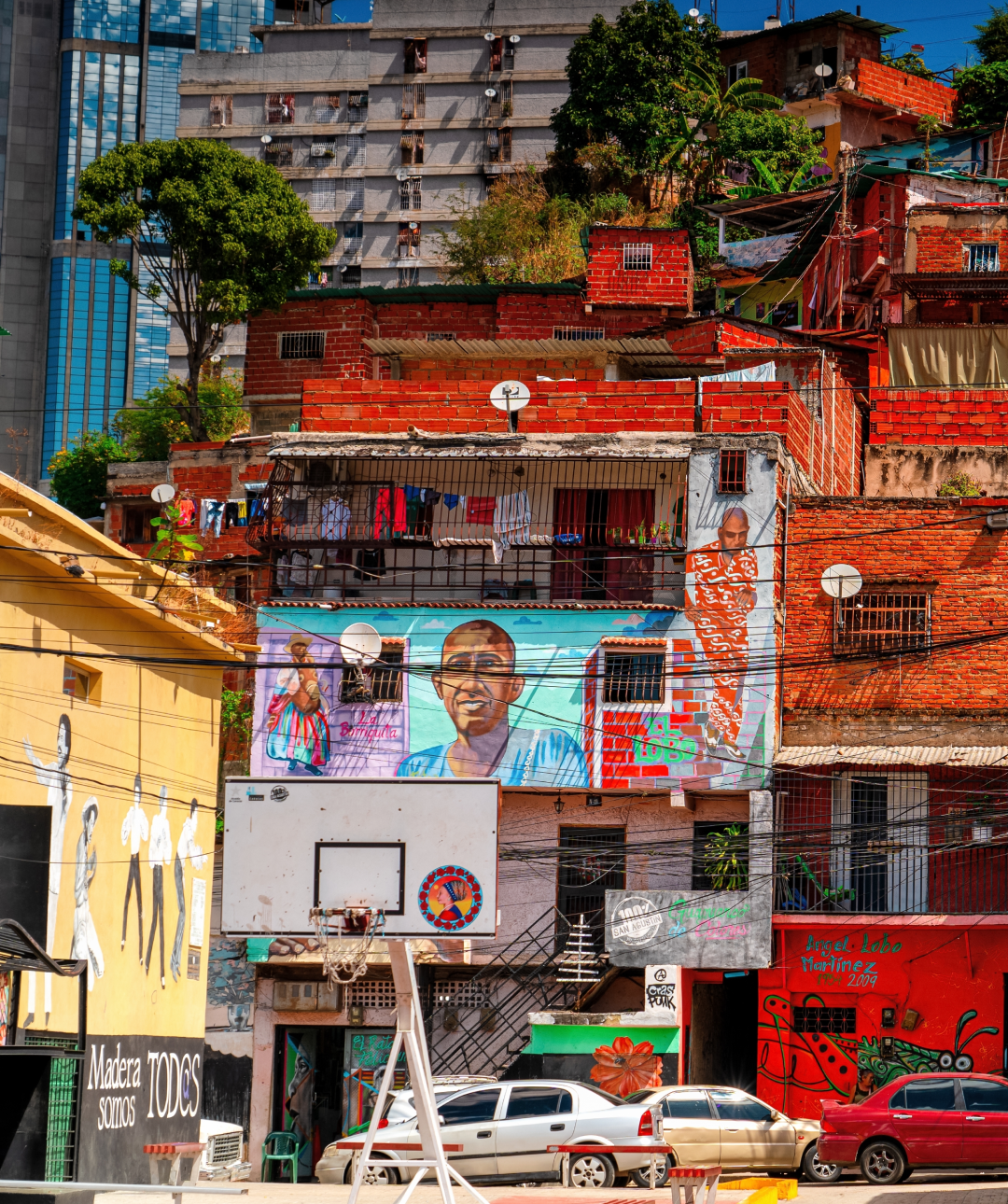Good morning, readers!
In Venezuela, the bolívar is depreciating by 13% each month, rapidly eroding the wages and savings of Venezuelans. As prices surge, oil exports stall, and controls strain the economy, the regime has ramped up financial repression. It is also arresting economists and platform operators who publish independent financial data, including those behind the exchange rate tracker Monitor Dólar and the now-defunct crypto exchange El Dorado.
Meanwhile, protests continued across Kenya on July 7, commemorating Saba Saba, a date long associated with Kenya’s pro-democracy movement. During which, President William Ruto came under increasing scrutiny for encouraging police to shoot protesters in the legs. Human rights groups report 31 killed, over 100 injured, and more than 530 arrested. HRF has strongly condemned the use of live ammunition and excessive force against demonstrators upset with high inflation, unemployment, tax reforms, and government repression.
In open-source news, we bring word of two new developments in offline and decentralized communications for activists and journalists. White Noise is a new encrypted messaging app built on nostr that offers private group chats and direct messages without relying on centralized servers or accounts. It protects not just message content but also metadata, making it harder for regimes to map social networks or monitor communication patterns of journalists and dissidents.
Additionally, Fernweh is a new Bluetooth-based messaging app that enables users to communicate without Internet or cellular service by forming a decentralized Bluetooth mesh network. It turns nearby smartphones into message relays where messages hop offline through nearby phones before reaching their intended recipient. It can potentially offer a censorship-resistant tool for secure communication in protests, remote areas, or regions under authoritarian control.
We end with the latest installment of the HRF x Pubkey Freedom Tech Series, where HRF’s bitcoin development lead, Alex Li, sits down with Soapbox CEO Alex Gleason to discuss the current state and future of decentralized social protocols.
Let’s unpack this week’s news.

Global News
Venezuela | Bolívar Depreciating by 13% a Month
In Venezuela, the currency crisis has returned in full force. The Venezuelan bolívar is losing value at an average rate of 13% per month, and Bank of America now forecasts 530% annual inflation by year’s end if current trends continue. With oil production falling and controls tightening, Maduro’s regime has resorted once again to printing money to cover federal expenses. The impact is immediate: prices rose 26% in May according to the Venezuelan Finance Observatory, collapsing wages and evaporating savings. Officials are also targeting those who report or publish independent economic data. In recent months, the regime has arrested economists, analysts, and platform operators who shared inflation figures or parallel currency exchange rates in an attempt to suppress information contradicting the state’s narrative. This includes detaining 20 people associated with Monitor Dólar, a site that provided unofficial exchange rates, and raiding the home of the founder of the now-defunct cryptocurrency exchange, El Dorado. As both the currency and the flow of information collapse, many Venezuelans are left navigating an economy where even the act of calculating a fair exchange rate is treated as a threat.
Kenya | ‘Shoot in the Leg’ Order Amid Protests
During nationwide Saba Saba demonstrations on July 7, a date tied to Kenya’s long-standing pro-democracy movement, Kenyan President William Ruto drew widespread condemnation for ordering police to shoot protesters in the legs. “Anyone caught burning another person’s business or property should be shot in the leg, hospitalized, and later taken to court. Don’t kill them, but ensure their legs are broken,” Ruto said. This follows weeks of public unrest over growing economic and political repression, tax hikes, and the death of Kenyan teacher Albert Ojwang in police custody last month. To contain the unrest, the Kenyan government sealed off central Nairobi, and it now faces accusations of hiring cronies to intimidate protesters and target opposition groups. The Kenyan National Commission on Human Rights, which was attacked by 20 armed men on the eve of Saba Saba demonstrations, reports 31 killed, over 105 injured, more than 530 arrested, and two people missing. Article 19 added that at least three journalists were attacked. Human rights groups, including HRF, have strongly condemned the use of live ammunition and excessive force against peaceful demonstrators.
Russia | Delays Launch of Digital Ruble CBDC
Russia has postponed the full launch of its central bank digital currency, the digital ruble, to September 2026, with mandatory adoption for businesses slated for 2028. Despite the setback, the digital ruble pilot recently surpassed 100,000 transactions. Sberbank, Russia’s largest retail bank, is central to this growing usage. They are testing smart contracts and retail payments with the digital ruble. Yet, German Gref, Sberbank’s CEO, said, “I don’t see its advantages,” adding, “As an individual, I don’t understand why digital rubles are needed. As a bank, I don’t yet understand it very well either.” These comments reflect a common theme among CBDCs: they’re an answer in search of a question. Alongside full programmability and traceability, new details reveal that the digital ruble pays no interest on balances, offers no cashback benefits, and excludes offline payments. The digital ruble threatens financial freedom by enabling unprecedented state surveillance and control over the financial lives of Russians and civil society.
Cuba | Half a Retiree’s Monthly Pension Buys a Bag of Coffee
Every morning in Matanzas, Cuba, Rafael begins his day with a bitter ritual: hauling water, hoping for electricity, and sipping a diluted, often cold, coffee. At 67, he can’t afford imported coffee blends now sold at sky-high prices, as half his monthly pension would vanish with a single bag. Instead, he walks to a local snack bar, pays 20 pesos for a cup that tastes like burnt ash, and braces for another day of scarcity. Cuba’s once-proud coffee production has collapsed, replaced by diluted imports and gray market brews from Miami. Rafael can’t even make coffee at home, as 20-hour daily blackouts leave his coffeemaker cold and useless (and that’s assuming he can find and afford coffee grounds in the first place). Sugar, too, once a proud export of Cuba, has vanished into the crisis. For Rafael and millions of other Cubans like him, coffee is no longer a comfort; it’s a daily reminder that even the smallest pleasures are being pushed out of reach by a regime willing to hyperinflate the national currency for its own benefits.
Brazil | $100M PIX Payment System Hack
Brazilian police have arrested João Roque, an IT worker at financial software firm C&M, for allegedly aiding a cyberattack that siphoned over 540 million reais (about $100 million) from Brazil’s banking system. The hackers targeted PIX, Brazil’s national real-time payment network, which serves more than three-quarters of the population and is a core part of the country’s digital financial system. Roque reportedly sold his credentials, allowing the attackers to exploit institutional connections to the Central Bank. While individual users were not directly affected, the breach highlights a growing vulnerability in centralized financial systems where a single point of failure, like one employee or software firm, can undermine trust, drain public funds, and put national infrastructure at risk. So far, 270 million reais have been frozen, and police are seeking at least four additional suspects. Brazil’s Central Bank has suspended part of the firm’s operations to prevent further risk.
Recommended Content
Bitcoin Policy Summit: Bitcoin for Human Rights
At the 2025 Bitcoin Policy Summit, hosted by the Bitcoin Policy Institute, HRF brought activists and dissidents to the forefront of the programming to share how Bitcoin has become vital to their work under dictatorships. Those presentations are now available for viewing. Speeches include Venezuelan opposition leader Leopoldo López discussing open-source tech and resistance through decentralization for Venezuelans facing repression and hardship under the Maduro dictatorship. Nicaraguan journalist Berta Valle recounts her story of activism in the efforts to free her husband, Félix Maradiaga, from the grip of dictator Daniel Ortega. Anna Chekhovich, the financial director of the Anti-Corruption Foundation, shares her experience navigating the financial repression and restrictions NGOs face in Russia. And HRF Chief Strategy Officer Alex Gladstein delivers a keynote speech, explaining why Bitcoin is arguably the most powerful tool for human rights activism in the 21st century. Watch them here.

Bitcoin News
White Noise | New Encrypted Messaging App Built on Nostr
White Noise is a new messaging tool designed for the age of surveillance. It is built on the nostr protocol and secured by the Messaging Layer Security (MLS) standard to allow for encrypted group chats and anonymous direct messages without relying on centralized servers, phone numbers, or user IDs. Traditional messaging platforms often expose the metadata of dissidents that can reveal their networks, movements, and intentions, even if the content itself is encrypted. White Noise obfuscates who is talking to whom, offering privacy in message content and communication patterns. To learn more about how this project was built with activists in mind and what it could mean for freedom and human rights, watch this conversation with White Noise developer and HRF grantee Jeff Gardner in the latest bitcoin++ Insider Edition.
Cornell Bitcoin Club | Global Bitcoin Adoption Index
The Cornell Bitcoin Club launched a major research initiative (led by Dr. Sarah Kreps, director of the Brooks Tech Policy Institute at Cornell University), examining how Bitcoin is being adopted as a tool for financial freedom around the world. With support from HRF and The Reynolds Foundation, the study surveyed 25,000 people across 25 countries (both authoritarian and democratic) and conducted 250 interviews to better understand how individuals are using Bitcoin to navigate censorship, inflation, surveillance, and restrictions on property rights. Over the next 10 weeks, the club will share insights on why people opt in or out of Bitcoin and what barriers still remain to global adoption. For a deeper look at the project’s early results, readers can watch Kreps’ presentation at the 2025 Oslo Freedom Forum, where she explores how Bitcoin is being used not just as money but as a tool for self-determination and financial agency.
Fernweh | Offline Messaging via Bluetooth
Fernweh is a decentralized messaging app that lets users communicate over Bluetooth without Internet or cellular service, similar to the newly released Bitchat app built by Block and Twitter founder Jack Dorsey. Fernweh offers three core ways to communicate: direct messages between previously paired devices, group chats where messages hop locally across nearby phones until they reach the right person, and broadcasts that instantly alert everyone within Bluetooth range (all without relying on central servers or the Internet). Importantly, as more people adopt Ferweh as a tool for offline communication, the network should become stronger and more censorship-resistant, making it especially useful in remote areas, during protests, or under authoritarian regimes that restrict access to traditional networks. Learn more about it here.
Bitcoin Dada and Africa Bitcoin Conference | Announce ABC-Dada Fellowship
Bitcoin Dada, a nonprofit initiative and HRF grantee supporting African women with financial freedom through Bitcoin, and the Africa Bitcoin Conference have launched the ABC-Dada Fellowship. This new program aims to empower African women in Bitcoin through hands-on mentorship, technical and leadership training, and exposure to global networks. Selected fellows will receive a fully funded trip to Mauritius to attend the 2025 Africa Bitcoin Conference, gain VIP access to the event, and get to engage directly with experienced Bitcoin educators, developers, and activists from around the world. The program is designed to create more inclusive opportunities in the Bitcoin space by supporting women who want to lead, build, and teach in their communities. Applications are open until Aug. 15. Apply here.
Baltic Honeybadger | Bitcoin and Freedom Tech Conference
Baltic HoneyBadger 2025, taking place Aug. 9-10 in Riga, Latvia, is one of the longest-running Bitcoin conferences in the world. Known for its Bitcoin-only, cypherpunk focus, the event draws developers, educators, and advocates from across the globe to discuss Bitcoin as a tool for freedom. This year’s speakers include early Bitcoin contributor and nostr developer Martti Malmi, Cashu protocol developer Calle, and others working on decentralized communication and financial tools. As part of Riga Bitcoin Week, the conference is expanding its focus to broader “freedom tech,” including privacy-preserving protocols, censorship-resistant platforms, and free speech, reflecting the growing overlap between Bitcoin and other open technologies to protect civil liberties. Learn more about the event here.
OpenSats | Announces 12th Wave of Bitcoin Grants
OpenSats, a public nonprofit supporting open-source freedom technologies, announced its 12th round of grants for the Bitcoin protocol. Notable projects include Vexl, a peer-to-peer app for buying and selling bitcoin that offers a discreet and permissionless method for dissidents to acquire Bitcoin under authoritarian regimes. OpenSats also provided a grant to Krux, open-source firmware that enables anyone to build their own Bitcoin signing device via off-the-shelf parts. It makes self-custody more accessible and private to activists using hardware they may already possess. Sovran, an open-source ecash and Lightning wallet, also received a grant, expanding the accessibility of bitcoin payments with strong privacy. Learn more about the grantees here.
Recommended Content
HRF x Pubkey — Using Nostr and AI to Build Free Speech Social Media with Alex Gleason
In the latest HRF x Pubkey Freedom Tech series interview, Alex Gleason, CEO of Soapbox, sits down with HRF’s Bitcoin Development Lead, Alex Li, to discuss how nostr and AI can be combined to build censorship-resistant social media platforms. The conversation explores the technical and ethical challenges of moderating content without centralized control, how decentralized identity systems work, and what it takes to create online spaces that protect free expression, especially under authoritarian regimes. Watch the whole conversation here.







